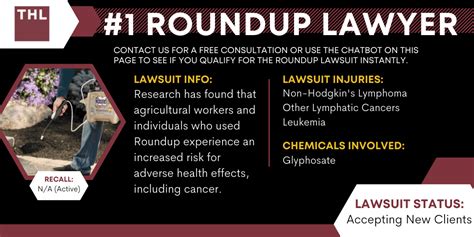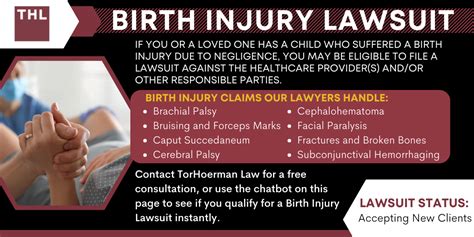Mesothelioma is a rare but aggressive cancer caused by asbestos exposure, often leaving families devastated emotionally and financially. Understanding the legal options available to mesothelioma patients and their loved ones is crucial for seeking justice and securing compensation. This guide delves into the key aspects of mesothelioma cancer lawsuits, covering everything from the disease’s causes and legal rights to choosing the right lawyer and navigating the complex legal process. Additionally, we’ll explore compensation options and provide valuable resources to support families facing this challenging diagnosis. Equip yourself with essential legal insights to protect your family’s future during this difficult time.
holehotels.com will lead an exploration of this topic in detail.
1. Understanding Mesothelioma: Causes and Risks
Mesothelioma is a type of cancer primarily caused by exposure to asbestos, a fibrous mineral once widely used in construction, manufacturing, and various industries. When asbestos fibers are inhaled or ingested, they can become lodged in the lining of the lungs, abdomen, or heart, leading to cellular damage over time. Mesothelioma often develops decades after exposure, making early detection challenging. The most common form is pleural mesothelioma, affecting the lungs, but peritoneal and pericardial types also exist.
High-risk occupations include construction workers, shipyard employees, and veterans, particularly those who worked with or around asbestos-containing materials. Even family members of exposed workers can be at risk through secondary exposure. Understanding these causes and risks is critical for individuals and families in determining potential legal claims. If you or a loved one has been diagnosed with mesothelioma, knowing your history of asbestos exposure can help guide your next steps.

2. Legal Rights of Mesothelioma Patients and Families
Mesothelioma patients and their families have legal rights that allow them to pursue compensation for the physical, emotional, and financial burdens caused by asbestos exposure. Since mesothelioma is often linked to workplace exposure, many individuals are entitled to file claims against companies that manufactured, distributed, or used asbestos-containing materials. Employers, manufacturers, and property owners have a responsibility to protect individuals from the dangers of asbestos, and failing to do so can make them legally liable.
There are two primary legal paths for seeking justice: personal injury lawsuits filed by the patient and wrongful death lawsuits filed by family members after the patient’s passing. Both routes aim to secure compensation for medical expenses, lost wages, and pain and suffering. Additionally, mesothelioma patients may be eligible for compensation through asbestos trust funds set up by bankrupt companies that previously used asbestos.
It’s crucial for mesothelioma patients and their families to act quickly, as statutes of limitations vary by state and can limit the time available to file a lawsuit. Consulting with a specialized mesothelioma lawyer ensures the legal rights of affected individuals are protected.

3. Types of Mesothelioma Lawsuits: Personal Injury vs. Wrongful Death
Mesothelioma lawsuits typically fall into two main categories: personal injury lawsuits and wrongful death lawsuits. Each serves a distinct purpose, depending on whether the patient is still living or has passed away due to the disease.
A personal injury lawsuit is filed by the mesothelioma patient themselves. This type of lawsuit aims to hold responsible parties accountable for exposing the patient to asbestos, leading to their diagnosis. Through a personal injury lawsuit, the patient can seek compensation for medical expenses, lost wages, pain and suffering, and other damages. Filing a personal injury claim allows the patient to obtain justice during their lifetime and secure financial support for ongoing treatment and care.
On the other hand, a wrongful death lawsuit is filed by the surviving family members after a loved one has passed away from mesothelioma. This type of lawsuit seeks compensation for funeral expenses, loss of financial support, emotional suffering, and other damages related to the loss of a family member. Wrongful death lawsuits allow families to hold negligent companies or employers accountable and seek justice on behalf of their deceased loved one.
Choosing the right type of lawsuit depends on the specific circumstances of the case, and consulting an experienced mesothelioma attorney can help patients and families determine the best legal path to pursue.

4. Finding the Right Mesothelioma Lawyer: What to Look For
Finding the right mesothelioma lawyer is a crucial step in pursuing justice and securing compensation for you and your family. Mesothelioma cases are complex and require specialized legal expertise, so it’s important to choose an attorney with a strong track record in handling asbestos-related lawsuits.
When searching for a lawyer, look for someone who has extensive experience in mesothelioma and asbestos litigation. They should have a proven history of successful settlements and verdicts, demonstrating their ability to effectively advocate for mesothelioma patients and families. Knowledge of asbestos laws, state statutes of limitations, and access to resources such as asbestos trust funds are essential qualities to consider.
Additionally, a good mesothelioma lawyer should be compassionate and understand the emotional toll this illness takes on families. They should offer personalized attention and be available to answer questions and provide updates throughout the legal process. Since most mesothelioma attorneys work on a contingency fee basis, meaning they only get paid if they win your case, you can pursue your claim without worrying about upfront legal fees.
Choosing a reputable mesothelioma lawyer ensures that your case is handled with care and professionalism, increasing the likelihood of a successful outcome that provides financial security for your family during this challenging time.
5. Steps in Filing a Mesothelioma Lawsuit: A Comprehensive Overview
Filing a mesothelioma lawsuit involves several critical steps, each designed to build a strong case for compensation. The first step is consulting with an experienced mesothelioma attorney who will evaluate your case and determine the best legal strategy based on your asbestos exposure history and diagnosis. Once you choose your lawyer, they will gather all relevant information, including medical records, employment history, and evidence of asbestos exposure.
After gathering the necessary information, your lawyer will file a formal complaint against the responsible parties, such as employers, manufacturers, or property owners. The complaint outlines the details of your case and the compensation you are seeking. Following this, the discovery phase begins, where both sides exchange information and gather additional evidence, including depositions, documents, and expert testimony.
Throughout the process, your lawyer may negotiate a settlement with the defendants to avoid going to trial. If a fair settlement is not reached, your case may proceed to trial, where a judge or jury will determine the outcome.
It’s important to act quickly, as there are time limits, known as statutes of limitations, that restrict how long you have to file a claim. With a knowledgeable attorney, the legal process can be navigated efficiently, ensuring your rights are protected.
6. Compensation and Settlement Options: What to Expect
Compensation in mesothelioma lawsuits can vary based on several factors, including the severity of the illness, the extent of asbestos exposure, and the financial impact on the patient and their family. Typically, mesothelioma settlements provide compensation for medical expenses, lost wages, pain and suffering, and other related costs. In some cases, punitive damages may also be awarded to punish companies for knowingly exposing individuals to asbestos.
There are generally two ways mesothelioma cases are resolved: through a settlement or a trial verdict. Settlements are the most common outcome, where the defendant agrees to pay a negotiated sum to avoid going to trial. Settlements provide a quicker resolution and reduce the uncertainty of a trial outcome. However, if a settlement cannot be reached, the case may go to trial, where a judge or jury will determine the amount of compensation.
In addition to settlements and trial verdicts, mesothelioma patients may be eligible for compensation from asbestos trust funds. These funds were established by bankrupt companies that used asbestos and are specifically set aside to compensate victims.
Understanding your compensation options can help ensure that you receive the financial support needed to cover expenses and provide for your family during this challenging time.
7. Resources and Support for Mesothelioma Patients and Their Families
Navigating a mesothelioma diagnosis can be overwhelming, but several resources and support systems are available to assist patients and their families. Support groups and organizations, such as the Mesothelioma Applied Research Foundation and the American Cancer Society, offer valuable information, emotional support, and guidance for dealing with the disease. These groups can connect patients with others facing similar challenges and provide access to educational materials and advocacy efforts.
Additionally, many hospitals and cancer centers have dedicated mesothelioma care teams that offer specialized treatment options and support services. These teams can help manage symptoms, coordinate care, and provide counseling for both patients and their families.
Financial assistance programs are also available to help cover medical costs and other expenses. Nonprofit organizations and government programs, like Social Security Disability Insurance (SSDI), can offer financial relief during this difficult time.
For legal support, mesothelioma lawyers can guide families through the litigation process and help secure compensation. They often provide free consultations and work on a contingency fee basis, ensuring that legal services are accessible.
Utilizing these resources can help ease the burden of mesothelioma and provide critical support for patients and their families as they navigate their journey.
In conclusion, navigating a mesothelioma diagnosis and pursuing legal action requires careful consideration and support. Understanding the causes, legal rights, and types of lawsuits is essential for seeking justice and compensation. Finding the right lawyer and following the proper legal steps can significantly impact the outcome of a case. Compensation and support options are available to help cover the costs and ease the burden of the disease. By utilizing available resources and support systems, patients and their families can secure the necessary assistance and focus on managing their health and well-be
holehotels.com